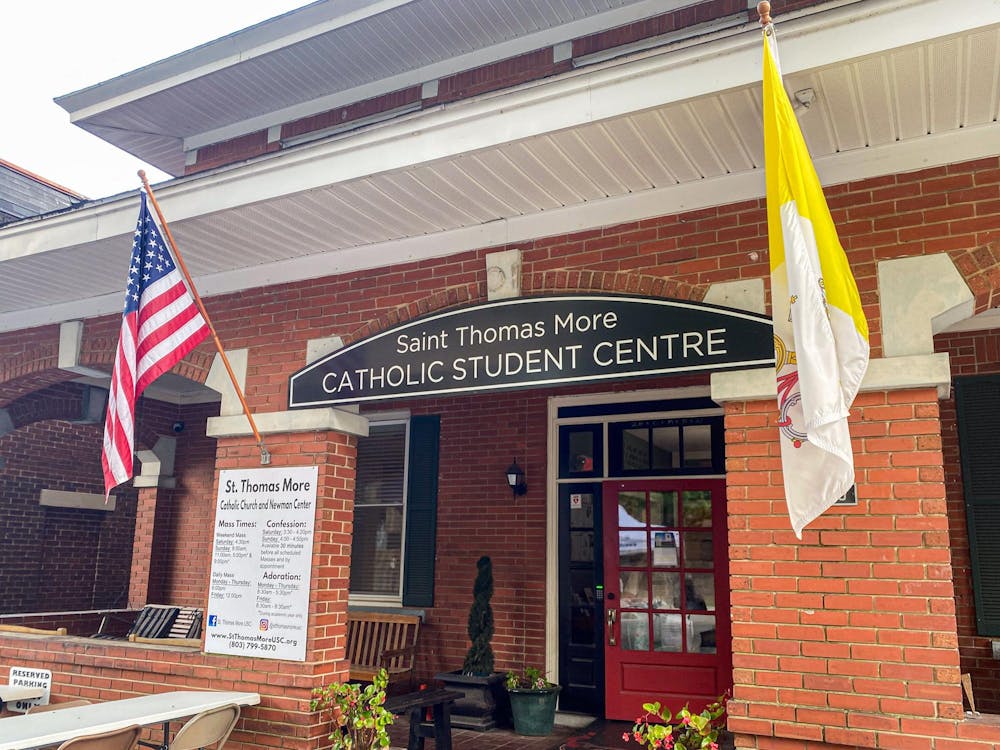Many students encounter questions of the meaning of life, and in many scenarios, religion and spirituality may be the only way to combat those questions.
According to the Harvard School of Public Health, participation in a religious or spiritual organization is associated with a healthier life, with less depression, substance abuse and an overall longer existence, so religion and spirituality should be a crucial part in everyone's life.
Spirituality and religion are commonly used synonymously, but they differ in that spirituality means individually finding a purpose and meaning in life, while religion involves an organized entity focused on a higher power, morality, practices and rituals. Though they both involve ethics, a person can be spiritual without being religious and vice versa.
Both mindsets can be especially helpful for students whose lives involve a variety of stressors, from concerns about the future, to relationships and everything in between. When students believe in a higher power, they can take comfort in the knowing there is a higher purpose which can remove some of the pressure associated with major decisions.
Rume Kpadamrophe, the President of The Carolina Church at USC and a graduate student from Nigeria, said God gives his life meaning and is who helps him through rough moments.
“As a student, having that relationship with God gives you purpose," Kpadamrophe said. "You need to know why you are here as a student. Are you just here because, ‘Oh, it’s the next phase of life,' or are you here because God has a purpose for you at this time of your life to accomplish in this city, in this university.”
Having that higher being in their life gives students the feeling of understanding that is impossible to find elsewhere. With religion involved, students are assisted with the hard truths that are consistently present and are supported knowing that they are where they should be.
Constant reminders are a great way to incorporate more religion and/or spirituality into student's lives. Things like following accounts whose ideologies they subscribe to, attending services regularly, and finding a community of people with similar beliefs can help students get more involved and switch their mindset.
Life's great — students should remind themselves that it stems from a greater good.
Religion and spirituality can also positively impact mental health. According to the National Alliance on Mental Health, religion and spirituality can aid in the toleration of stress by creating peacefulness, purpose and forgiveness in one’s life.For Kpadamrophe, God is the one he turns to in stressful situations for "practical wisdom on how to strategize."
Spirituality also plays a role in promoting physical health when it comes to caring for major illnesses, as well as overall health and well-being.
Knowing that there is a purpose can help people move on from physical or mental adversities that can and will arise during their time as a student. Unfortunately, injuries, breakups, and sometimes even deaths are to be expected, and having the outlook that it will get better and that there are reasons for these tragedies will promise hope for the future.

Additionally, religious and spiritual communities support students in not just the tough times, but also the good. Kpadamrophe, being from Nigeria, is thousands of miles away from his home, yet he said his religious community and God is the reason he knows he is where he belongs.
“It is important to have people around you that are not just there to pray for you, but they are there to support you — that really love you," Kpadamrophe said.
57% of college students report that their religion provides them with strength and guidance, according to Gitnux, a tech and marketing data blog.
Having that community based around a higher being gives students extra security that no other resource will provide. It's a group of people that want the best for them and will be with them through it all. Everyone lacks that community at some point in their life, but it can always be found at the root of spirituality and religion.
According to Tyler VanderWeele, a researcher from Harvard’s departments of epidemiology and biostatistics, between 1999 and 2014 the number of church attenders has decreased over the years, and research suggests that almost 40% of the increase in the U.S. suicide rate can be attributed with the decline in religious service attendance. VanderWeele found a "five-fold decrease" in risk of suicide in individuals that attended religious services regularly.
Despite this information, some college students avoid participating in religious or spiritual values, with detrimental results.
Without religion or spirituality, where can students get their positivity when it feels like everything is going wrong? How do they alleviate their stress quickly? How can they say without a doubt that they are where they should be in life? There aren't answers without bringing religion, spirituality, or both, into their life.
Kpadamrophe said that when times get tough, having someone to turn to is crucial and with religion there is always someone there to talk to. Whether its a person's religious community, a friend with similar faith, or a higher being to reach out to, students need to have the resource to help when they need it.
“Even though I’m alone — there's nobody to talk to — I can always talk to Him,” Kpadamrophe said.

